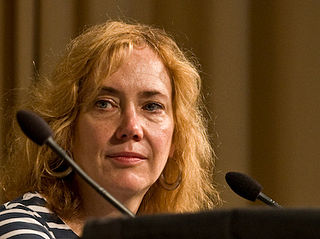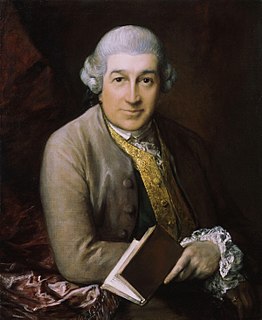A Quote by John Bunyan
Breathes there a man, whose judgment clear Can others teach their course to steer, Yet run himself life's mad career Wild as the wave?
Related Quotes
On the sled, in the box, lay a third man whose toil was over, - a man whom the Wild had conquered and beaten down until he would never move nor struggle again. It is not the way of the Wild to like movement. Life is an offense to it, for life is movement; and the Wild aims always to destroy movement.
English literature, from the days of the minstrels to the Lake Poets,--Chaucer and Spenser and Milton, and even Shakespeare, included,--breathes no quite fresh and, in this sense, wild strain. It is an essentially tame and civilized literature, reflecting Greece and Rome. Her wildness is a greenwood, her wild man a Robin Hood. There is plenty of genial love of Nature, but not so much of Nature herself. Her chronicles inform us when her wild animals, but not the wild man in her, became extinct.
Man—every man—is an end in himself, not a means to the ends of others; he must live for his own sake, neither sacrificing himself to others nor sacrificing others to himself; he must work for his rational self-interest, with the achievement of his own happiness as the highest moral purpose of his life.
Hear and attend and listen; for this is what befell and be-happened and became and was, O my Best Beloved, when the Tame animals were wild. The dog was wild, and the Horse was wild, and the Cow was wild, and the Sheep was wild, and the Pig was wild -as wild as wild could be - and they walked in the Wet Wild Woods by their wild lones. But the wildest of all the wild animals was the Cat. He walked by himself and all places were alike to him
First, the desert is the country of madness. Second, it is the refuge of the devil, thrown out into the "wilderness of upper Egypt" to "wander in dry places." Thirst drives man mad, and the devil himself is mad with a kind of thirst for his own lost excellence--lost because he has immured himself in it and closed out everything else. So the man who wanders into the desert to be himself must take care that he does not go mad and become the servant of the one who dwells there in a sterile paradise of emptiness and rage.
I believe that the unity of man as opposed to other living things derives from the fact that man is the conscious life of himself. Man is conscious of himself, of his future, which is
death, of his smallness, of his impotence; he is aware of others as others; man is in nature, subject to its laws even if he transcends it with his thought.
The poor dog, in life the firmest friend, The first to welcome, foremost to defend, Whose honest heart is still the master's own, Who labours, fights, lives, breathes for him alone, Unhonour'd falls, unnoticed all his worth, Denied in heaven the soul he held on earth, While man, vain insect hopes to be forgiven, And claims himself a sole exclusive heaven.






































